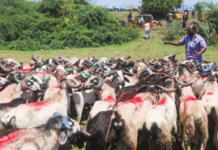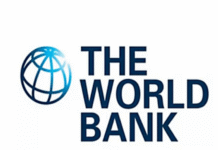By Rohit Vaid
New Delhi– Notwithstanding growth pangs, the Reserve Bank is expected to maintain the accommodative monetary easing pause till the end of FY20 to contain retail inflation levels, say industry observers.
Economists and industry experts pointed out that an imminent rise in retail food inflation over the next two months will override growth concerns and deter RBI to go in for a rate cut during the final monetary policy review for FY20 in Februray.
“In our view, the CPI inflation will rise sharply in the next two prints. So, we expect a pause in the February 2020 policy review,” said ICRA Principal Economist Aditi Nayar.
“Further monetary easing may not be sufficient to trigger a rapid revival in economic growth in the current situation.”
Recently, RBI’s monetary policy committee in its fifth review of the current fiscal maintained the repo, or short-term lending rate for commercial banks at 5.15 per cent.
The apex bank had reduced key lending rates during the last five policy reviews to reverse the current consumption slowdown that has plagued the country’s economy.
RBI Governor Shaktikanta Das defended the decision by recalling the “primary objective” of the central bank was inflation targeting and price control.
He pointed out that headline inflation is currently high, largely due to rise in food inflation. Das added that food inflation will remain “very high” during January-March, which prompted the RBI to hit the pause button on rate cuts.
Last month, macro-economic data showed that a substantial rise in food prices had lifted India’s October retail inflation to 4.62 per cent from 3.99 per cent in September.
The National Statistics Office is slated to release the macro-economic data point of Consumer Price Index for November on December 12, followed a day later by Wholesale Price Index.
Besides, RBI reduced the country’s FY20 GDP growth forecast from 6.1 per cent in the October policy to 5 per cent.
“Interestingly, the RBI seemed content with the pace of transmission and no longer sees the transmission as staggered and incomplete,” Edelweiss Securities’ Economist Madhavi Arora.
“We think that this easing pause is temporary. Even so, our estimates suggest inflation will likely remain above 5 per cent in 4QFY20 and could constrain a rate cut in February.”
Furthermore, RBI may await the budgetary announcements and the fiscal measures thereof before any decision to revise the rates.
According to Acuite Ratings & Research Lead Economist Karan Mehrishi: “At this point, an accommodative policy in pause mode appears likely till Q1 FY21.
“While there may be a potential risk of a rate hike if the inflation print remains persistently elevated along with a comfortable liquidity scenario, it is likely that the MPC will abstain from such action unless there is a modest revival in growth rate.” (IANS)







